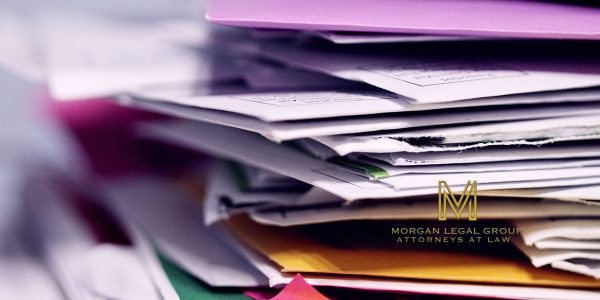How to Organize Your Estate Documents
Organizing your estate documents is critical to responsible financial and legal planning. It’s not just about keeping your paperwork in order; it’s about ensuring that your wishes are respected, your assets are protected, and your loved ones are provided for. In this comprehensive guide, brought to you by Morgan Legal Group in Miami, we’ll walk you through organizing your estate documents effectively.
Step 1: Gather Your Important Documents
The first step in organizing your estate documents is to gather all your essential paperwork. These documents serve as the foundation for your estate plan. Ensure you have copies of the following:
Legal Documents:
Your will, trust documents, powers of attorney, and healthcare directives are some of the legal documents that form the core of your estate plan.
Financial Records:
Collect deeds, property titles, bank statements, investment account information, retirement account details, and insurance policies. These financial records are crucial for managing and distributing your assets according to your wishes.
Tax Documents:
Keep copies of your recent tax returns and any relevant IRS correspondence. Understanding your tax situation is vital in estate planning.
Personal Information:
Include important personal documents like birth certificates, marriage certificates, and Social Security cards. These documents are essential for verifying your identity and marital status.
Debts and Liabilities:
Compile a list of any outstanding debts, such as mortgages, loans, and credit card balances. Knowing your liabilities helps your executor settle your estate more efficiently.
Contact Information:
Maintain an updated list of contact information for your attorney, financial advisor, and any other key individuals who should be informed in case of your incapacity or passing.
Step 2: Use a Secure Filing System
Once you’ve gathered your essential documents, it’s crucial to store them in a secure filing system. Organizing your paperwork methodically helps avoid confusion and ensures that your estate documents can be located and accessed when needed. Consider these options:
Physical Folders:
Use labeled folders or a filing cabinet to store paper documents. Each folder should be clearly marked to indicate its contents. Ensure a trusted family member or your designated executor knows the location of these physical documents.
Safe Deposit Box:
Certain original documents, like your will or property deeds, should be stored in a bank’s safe deposit box. Ensure your executor and key family members know about the safe deposit box’s existence and location.
Digital Copies:
In the digital age, creating digital copies of all your estate documents is wise. Scan your paper documents and store them on a secure external hard drive or use a reputable cloud storage service. Ensure your loved ones know how to access these digital copies in case of an emergency.
Step 3: Keep Records Updated
Estate documents should be regularly reviewed and updated to reflect any changes in your life or financial situation. Life is dynamic, and your estate plan should evolve to meet your current needs. Reviewing and revising your estate plan after significant life events, such as marriage, divorce, the birth of children or grandchildren, and any changes in your financial situation, is recommended. Regular reviews, typically conducted every three to five years, ensure your estate plan stays relevant and effective.
Step 4: Inform Trusted Individuals
Organizing your estate documents is not only about keeping things in order; it’s also about ensuring your loved ones know what to do if something happens to you. Trusted individuals, such as your spouse, adult children, or the executor of your estate, should be informed about the location of your estate documents and how to access them in case of an emergency or your passing. Make sure your family members are aware of these documents and the importance of contacting your attorney and financial advisor promptly in times of need.
Step 5: Consult with an Attorney
While organizing your estate documents is a crucial step, consulting with an experienced estate planning attorney is advisable. Attorneys specializing in estate planning possess the expertise to provide you with sound legal advice and ensure your estate documents are legally binding and up-to-date. They can review your documents to verify everything is in order, advise you on any necessary changes, and offer guidance on complex estate planning strategies. An attorney is an invaluable resource to help you protect your assets, minimize tax liabilities, and ensure your wishes are carried out precisely as you desire.
By following these steps, you can effectively organize your estate documents, providing peace of mind for yourself and ensuring a smooth process for your loved ones when the time comes. Remember that estate planning is a continuous process; regular reviews are essential to adapting your plan to life’s changes. Your estate documents are your legacy; keeping them in order is one of the greatest gifts you can give your family.
If you need further assistance or have questions about estate planning, please get in touch with Morgan Legal Group in Miami. Our team of experts is here to help you with your estate planning needs and ensure your financial and legal affairs are meticulously organized.











